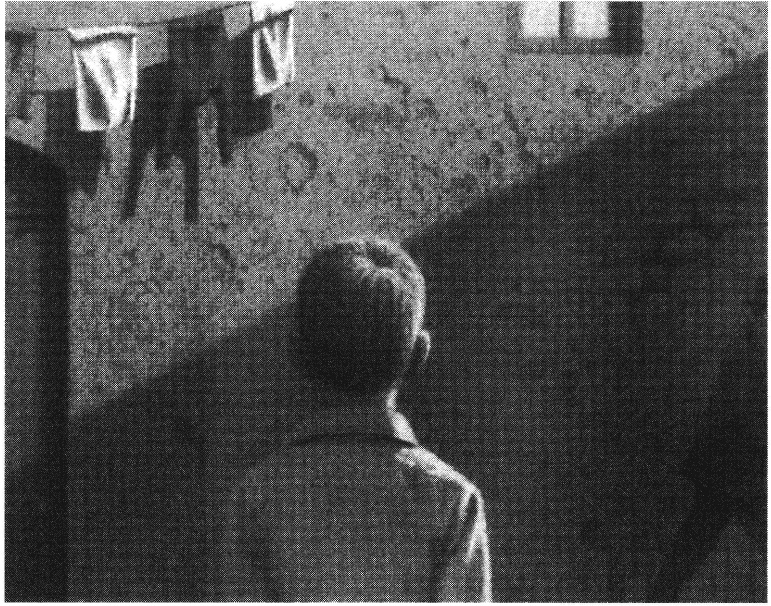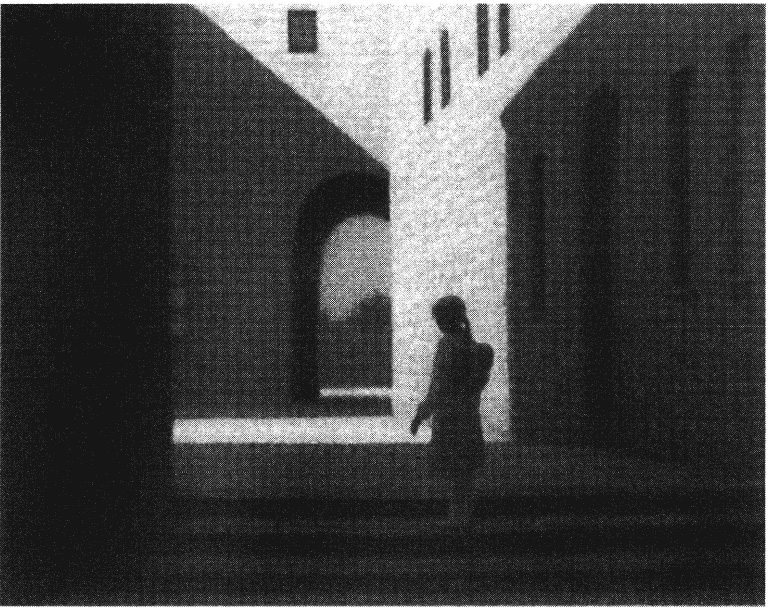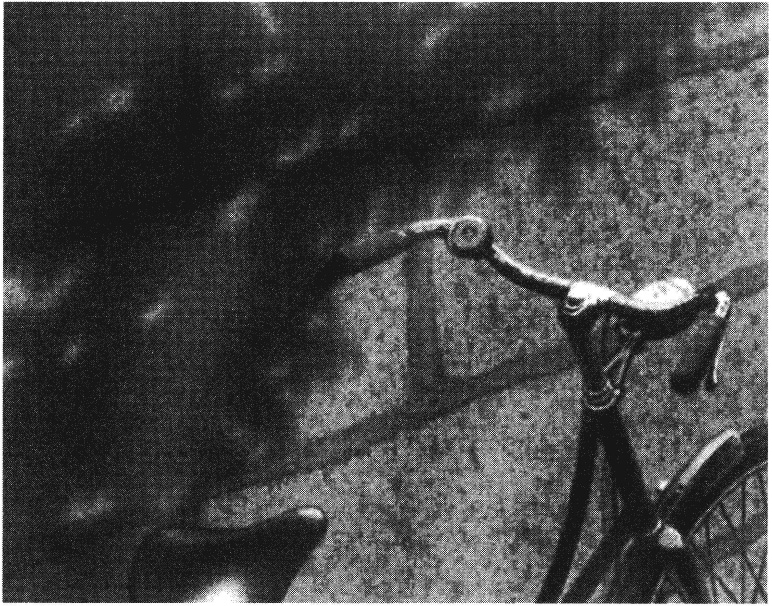Soumchi
Authors: Amos Oz

 Â
Â
Who Shall Ascend unto the Hill of the Lord?
First Mariner Books edition 2012
Copyright © 1978 by Amos Oz and Am Oved
Publishers, Ltd Tel Aviv English
English translation copyright © 1980 by Chatto and Windus Ltd
Illustrations copyright © 1993 Carl Hanser Verlag
All rights reserved
For information about permission to reproduce selections from this book, write to Permissions, Houghton Mifflin Harcourt Publishing Company, 215 Park Avenue South, New York, New York 10003.
Library of Congress Cataloging-in-Publication Data
Oz, Amos.
[Sumkhi. English]
Soumchi / Amos Oz; translated by Amos Oz and Penelope Farmer;
illustrated by Quint Buchholz.â1st Mariner Books ed.
p. cm.
ISBN 978-0-547-63693-1
[1. JerusalemâFiction.] I. Farmer, Penelope, date. ill.
II. Buchholz, Quint. III. Title.
PZ7.O984So 2012
[Fic]âdc23 2012016430
PROLOGUETo Fania, Gallia and Daniel
On Changes

Â
In which may be found a variety of memories and reflections, comparisons and conclusions. You may skip them if you'd rather and pass straight on to Chapter One where my story proper begins.
Â
Everything changes. My friends and acquaintances, for example, change curtains and professions, exchange old homes for new ones, shares for securities, or vice versa, bicycles for motor bicycles, motor bicycles for cars, exchange stamps, coins, letters, good mornings, ideas and opinions: some of them exchange smiles.
In the part of Jerusalem known as Sha'are Hesed there once lived a bank cashier who, in the course of a single month, changed his home, his wife, his appearance (he grew a red moustache and sideburnsâalso reddish), changed first name and surname, changed sleeping and eating habits, in short, he changed everything. One fine day he even changed his job, became a drummer in a night club instead of a cashier (though actually this was not so much a case of change, more like a sock being turned inside out).
Even while we are reflecting on it, by the way, the world about us is gradually changing too. Though the blue transparency of summer still lies across the land, though it is still hot and the sky still blazes above our heads, yet already, near dusk, you can sense some new coolnessâat night comes a breeze and the smell of clouds. And just as the leaves begin to redden and to turn, so the sea becomes a little more blue, the earth a little more brown, even the far-off hills these days look somewhat farther away.
Everything.
As for me; aged eleven and two months, approximately, I changed completely, four or five times, in the course of a single day. How then shall I begin my story? With Uncle Zemach or Esthie? Either would do. But I think I'll begin with Esthie.

Â
And in which facts will at last be revealed that have been kept secret to this day; love and other feelings among them.
Â
Near us in Zachariah Street lived a girl called Esthie. I loved her. In the morning, sitting at the breakfast table and eating a slice of bread, I'd whisper to myself, "Esthie."
To which my father would return; "One doesn't eat with one's mouth open."
While, in the evenings, they'd say of me: "That crazy boy has shut himself in the bathroom again and is playing with water."
Only I was not playing with water at all, merely filling up the hand basin and tracing her name with my finger across the waves on its surface. At night sometimes I dreamed that Esthie was pointing at me in the street, shouting, "Thief, thief!" And I would be frightened and begin to run away and she would pursue me; everyone would pursue me, Bar-Kochba Sochobolski and Goel Germanski and Aldo and Elie Weingarten, everyone, the pursuit continuing across empty lots and backyards, over fences and heaps of rusty junk, among ruins and down alleyways, until my pursuers began to grow tired and gradually to lag behind, and at last only Esthie and I would be left running all alone, reaching almost together some remote and distant spot, a woodshed, perhaps, or a washhouse on a roof, or the dark angle under the stairs of a strange house, and then the dream would become both sweet and terribleâoh, I'd awake at night sometimes and weep, almost, from shame. I wrote two love poems in the black notebook that I lost in the Tel Arza wood. Perhaps it was a good thing I lost it.
But what did Esthie know?
Esthie knew nothing. Or knew and wondered.
For example; once I put my hand up in a geography lesson and stated authoritatively:
"Lake Hula is also known as Lake Soumchi." The whole classroom of course immediately roared with loud and unruly laughter. What I had said was the truth; the exact truth in fact, it's in the encyclopedia. In spite of which, our teacher, Mr. Shitrit, got confused for a moment and interrogated me furiously: "Kindly sum up the evidence by which you support your conclusion," But the class had already erupted, was shouting and screaming from every direction:
"Sum it up, Soumchi, sum it up, Soumchi." While Mr. Shitrit swelled like a frog, grew red in the face and roared as usual:
"Let all flesh be silent!" And then, besides: "Not a dog shall bark!"
After five more minutes the class had quieted down again. But, almost to the end of the eighth grade, I remained Soumchi, I've no ulterior motive in telling you all this. I simply want to stress one significant detail; a note sent to me by Esthie at the end of that same lesson, which read as follows:
You're nuts. Why do you always have to say things that get you into trouble? Stop it!
Only then she had folded over one comer at the bottom of the note and written in it, very small:
But it doesn't matter. E.
So what did Esthie know?
Esthie knew nothing, or perhaps she knew and wondered. As for me, in no circumstance would it have occurred to me to hide a love letter in her satchel as Elie Weingarten did in Nourit's, nor to send her a message via Ra'anana, our class matchmaker, like Tarzan Bamberger, also to Nourit. Quite the reverse: this is what I did; on every possible occasion I'd pull Esthie's plaits; time and again I stuck her beautiful white jumper to her chair with chewing gum.
Why did I do it? Because. Why not? To show her. And I'd twist her two thin arms behind her back nearly as hard as I could, until she started calling me names and trying to scratch me, yet she never begged for mercy. That's what I did to Esthie. And worse besides. It was me who first nicknamed her Clementine (from the song that the English soldiers at the Schneller Barracks were spreading round Jerusalem those days: "
Oh my darling, oh my darling, oh my darling Clementine!
"âthe girls in our class, surprisingly, picked it up quite gleefully, and even at Hanukah six months later, when everything was over, they were still calling Esthie Tina, which came from Clementina, which came from Clementine).
And Esthie? She had only one word for me and she threw it in my face first thing every morning, before I had even had time to start making a nuisance of myself:
"Louse"âor else:
"You stink."
Once or twice at the ten o'clock break I very nearly reduced Esthie to tears. For that I was handed punishments by Hemda, our teacher, and took them like a man, tight-lipped and uncomplaining.
And that's how love blossomed, without notable event, until the day after the feast of Shavuot. Esthie wept on my account at the ten o'clock break and I wept on hers at night.

Â
In which Uncle Zemach goes too far and I set out for the source of the River Zambezi (in the heart of Africa).
Â
At the feast of Shavuot, Uncle Zemach came from Tel Aviv, bringing me a bicycle as a present. As a matter of fact my birthday falls between the two festivalsâof Passover and Shavuot. But in Uncle Zemach's eyes, all festivals are more or less the same, except for the Tree Planting festival which he treats with exceptional respect. He used to say, "At Hanukah we children of Israel are taught in school to be angry with the wicked Greeks. At Purim it's the Persians; at Passover we hate Egypt, at Lag B'omer, Rome. On May Day we demonstrate against England; on the Ninth of Av we fast against Babylon and Rome; on the twentieth of Tararauz, Herzl and Bialik died, while on the eleventh of Adar we must remember for all eternity what the Arabs did to Trumpedor and his companions at Tel Hai. The Tree Planting festival is the only one where we haven't quarrelled with anyone and have no griefs to remember. But it almost always rains thenâit does it on purpose."
My Uncle Zemach, they had explained to me, was Grandmother Emilia's eldest son by her first marriage, before she married Grandfather Isidore. Sometimes, when he was staying with us, Uncle Zemach would get me out of bed at half past five in the morning and incite me in a whisper to steal into the kitchen with him and cook ourselves an illicit double omelette. He would have a cheerful, even wicked gleam in his eye on those mornings, behaving just as if he and I were fellow members of some dangerous gang and only temporarily engaged in such a relatively innocent pastime as cooking ourselves illicit double omelettes. But my family generally had a very low opinion of my Uncle Zemach. Like this for instance:
"He was a little
spekulant
*
by the time he was fourteen in Warsaw, in the Nalevki district, and now here he is, still a
spekulant
in Bugrashov Street in Tel Aviv," Or:
"He hasn't changed an atom. Even the sun can't be bothered to brown him. That's the type he is. And there's nothing whatever we can do about it."